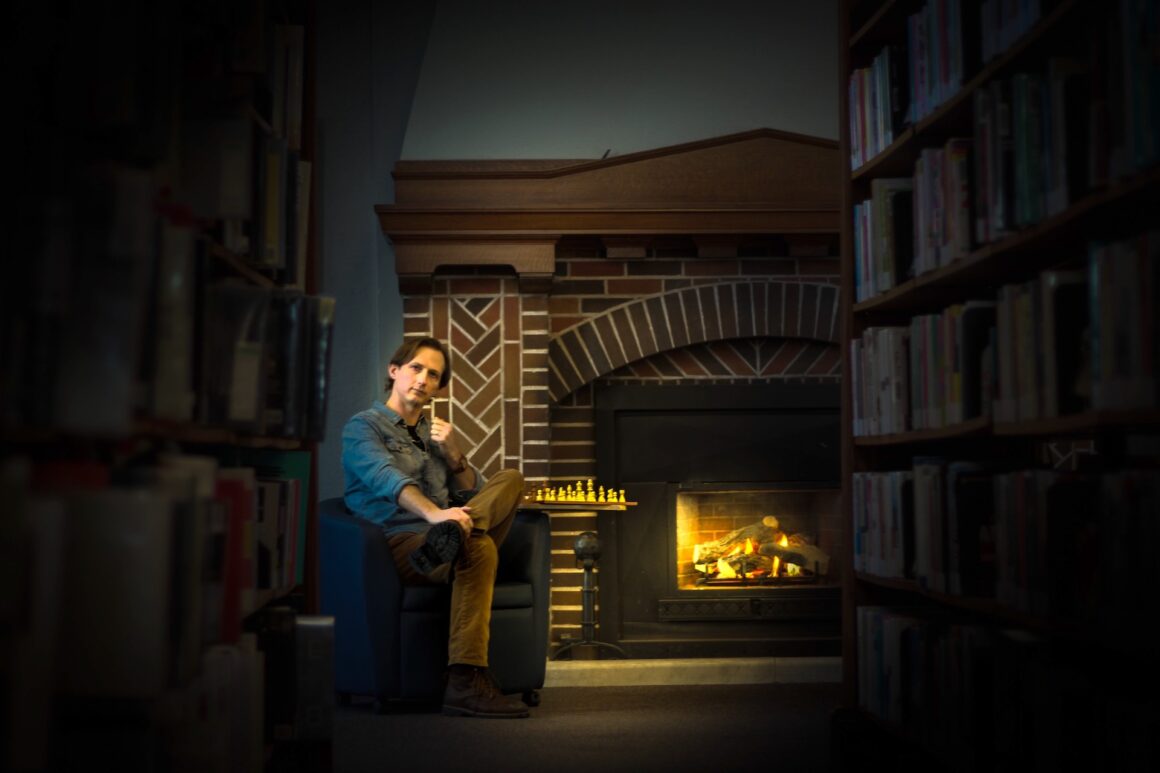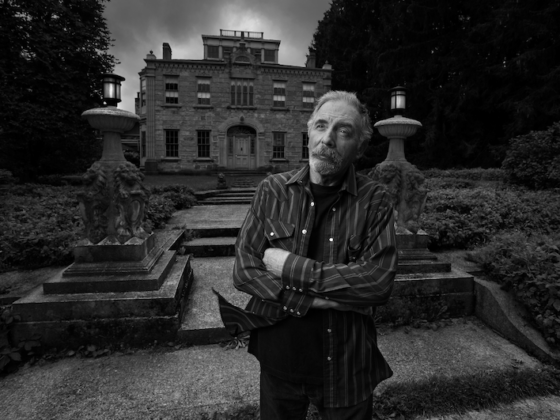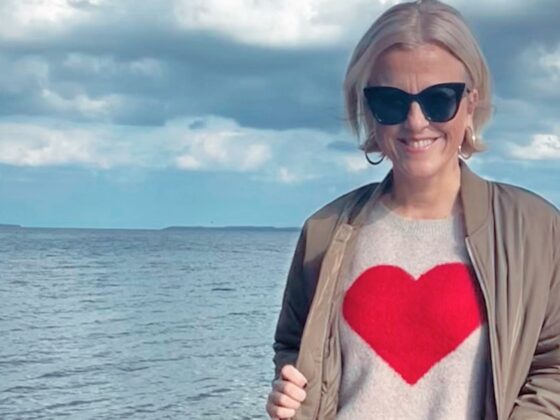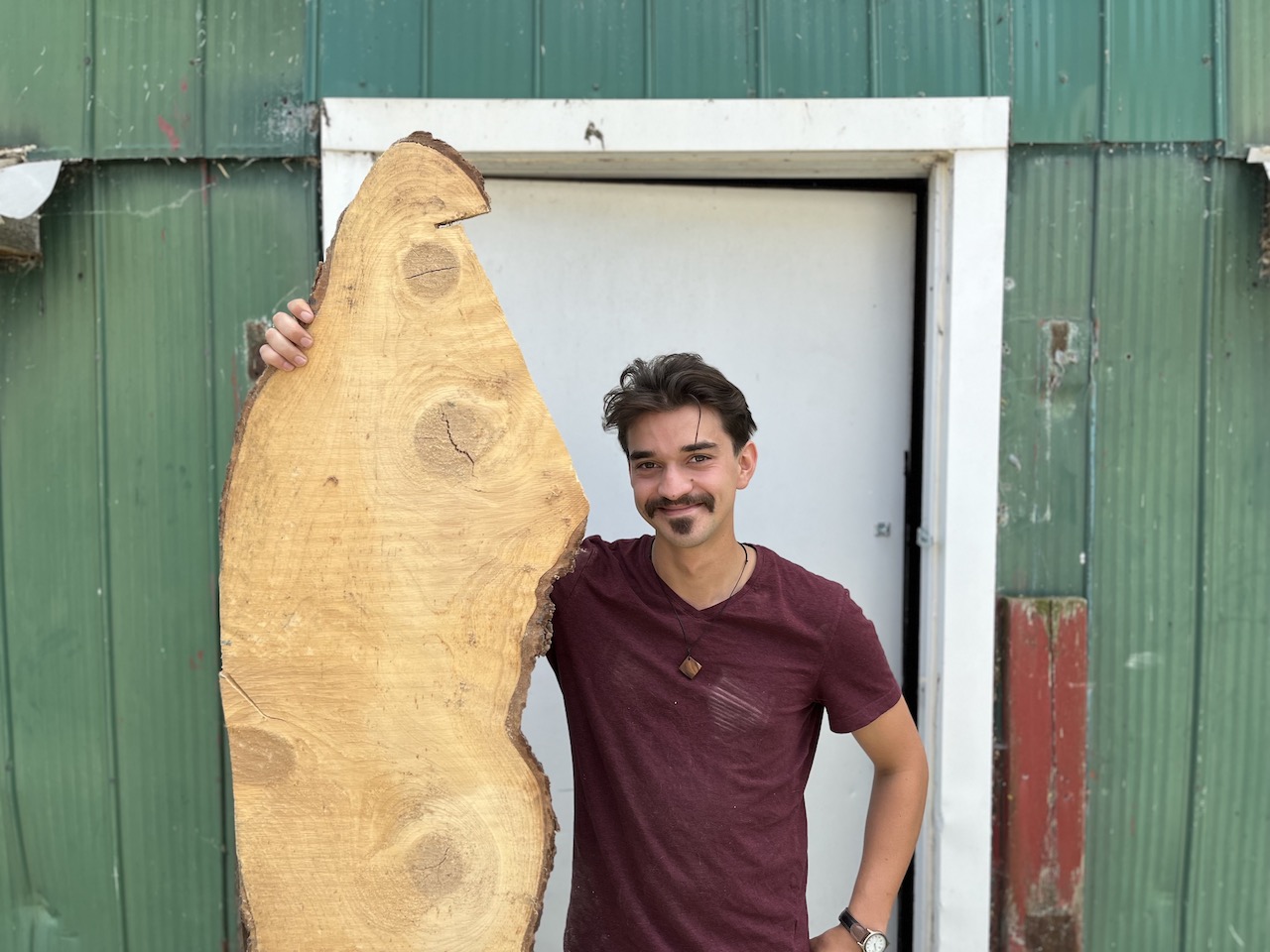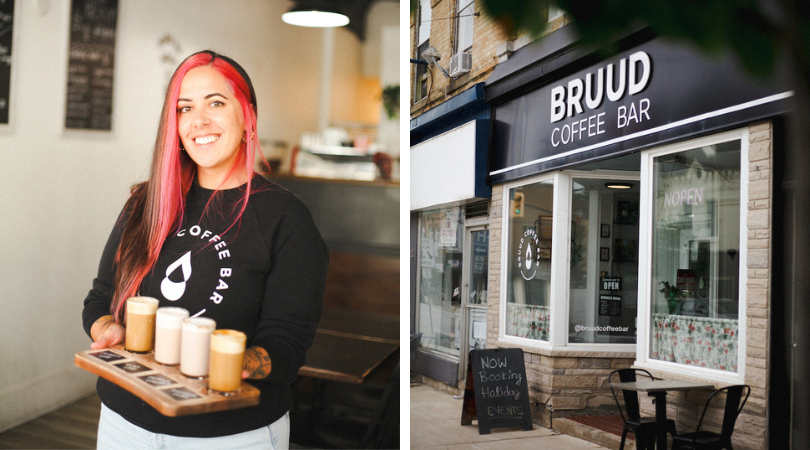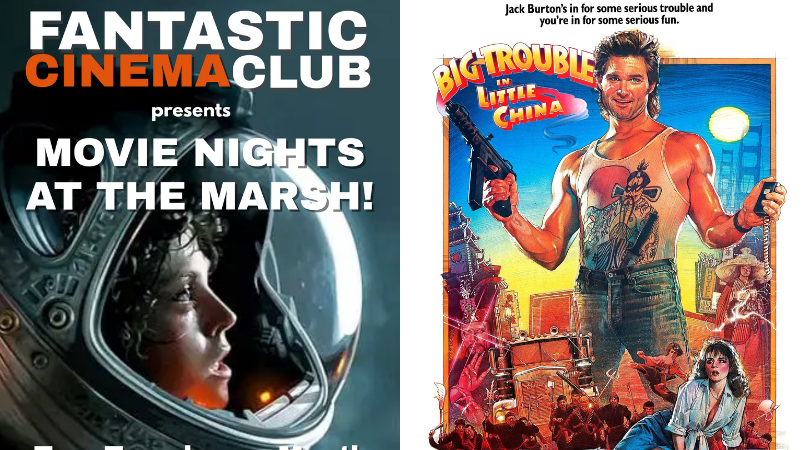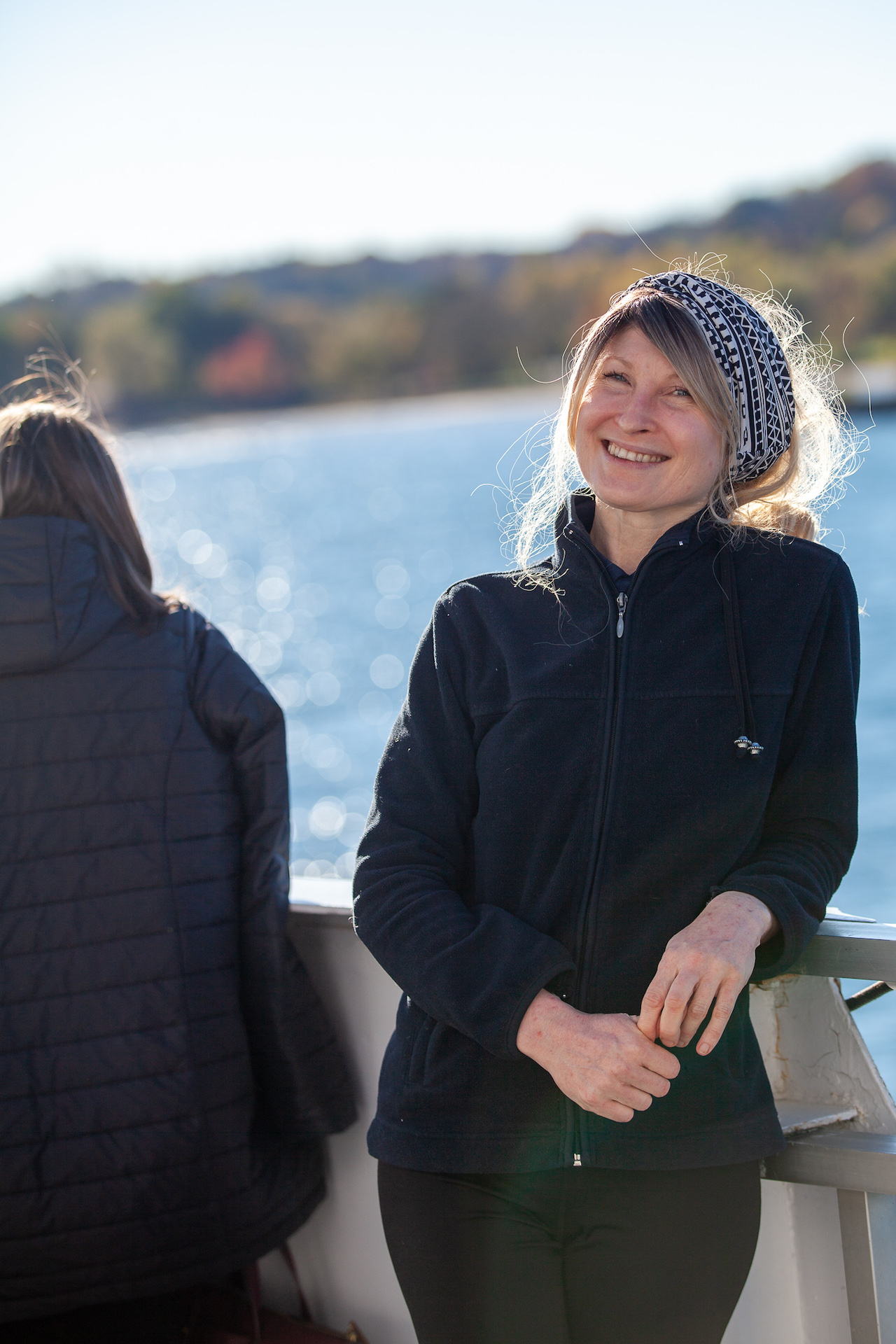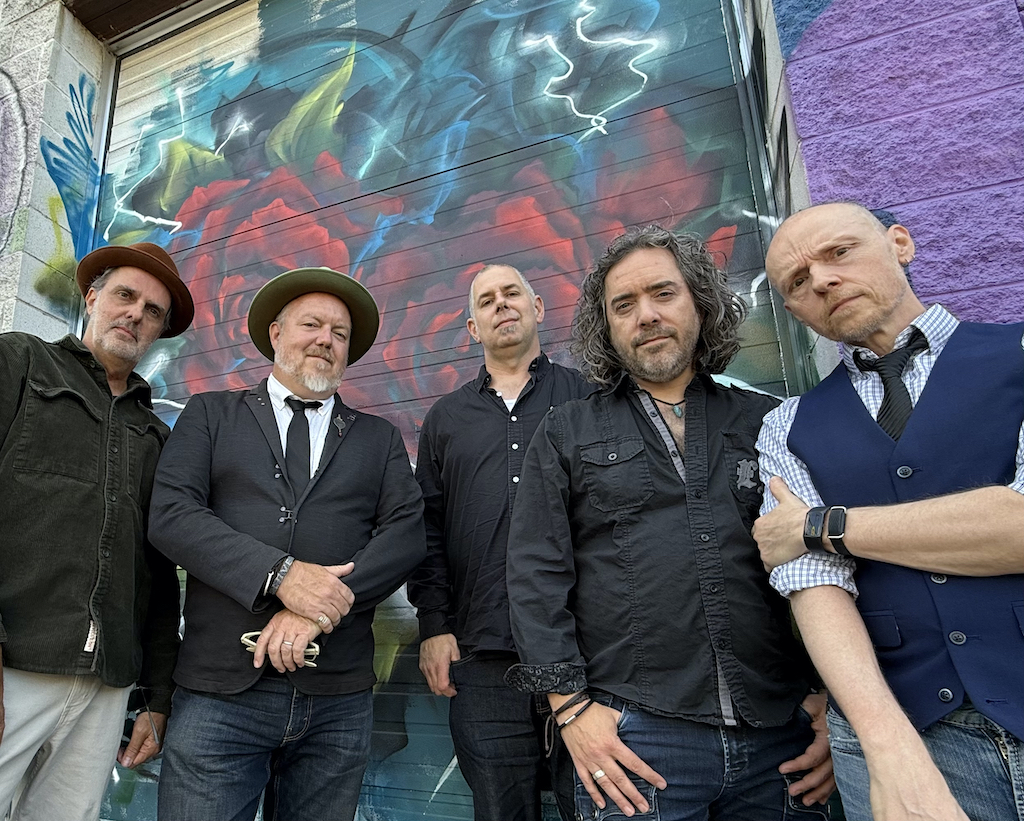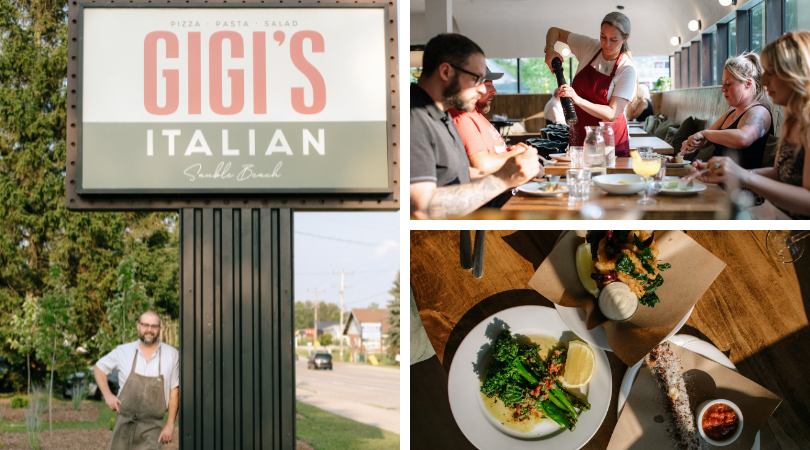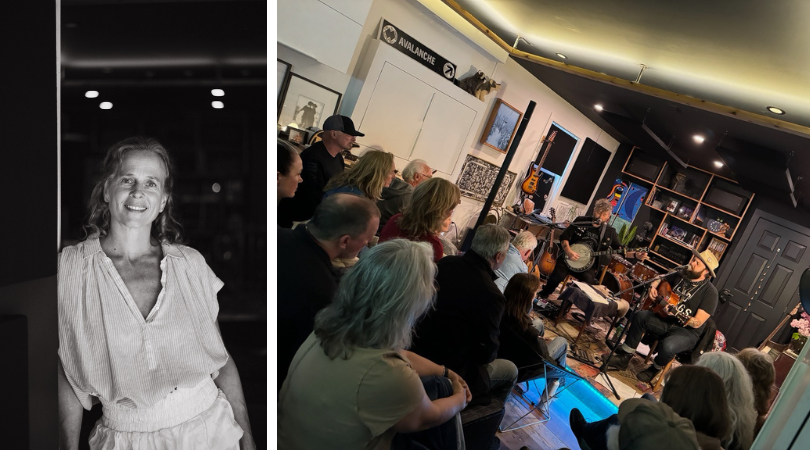Known as the game of kings, chess has a long and storied history, replete with mysticism, legend, and personal anecdotes. The whispered tales of grandmasters filter through the chess world and are repeated by children and grandparents playing a casual game over the holidays. Perhaps no game has ever captured the imaginations of so many, and while the game originated in India, it has become as international as any game, even football.
Simultaneously, chess is art – capricious, dynamic, indeterminate – and also science – cold, brutal logic forms the rigorous backbone of play. “All that matters on the chess board is good moves,” says Bobby Fischer, perhaps the most renowned grandmaster of all. He is also quoted as saying, “Psychologically, you should have confidence in yourself, and this confidence should be based on fact.” Fischer has also been described as “a madman driven sane by chess” … so you’ll permit me to take all of that with a block of salt.
Nevertheless, these words were reverberating through my brain as I drove to my first ever chess tournament, the Collingwood-Somborac Chess Festival. Where had I found the temerity to attempt something like this?!
The simple answer was that I had found a love for the game of chess at seven-years-old, taught by my father, and have intermittently enjoyed games (often accompanied by a rye in later years) with him ever since. The more contemporary answer is that chess.com provided me with a hitherto impossible-to-find cohort of players around the world with a similar (moderate) skill level and enthusiasm for playing. Some internal desire to find others who shared my passion, and get outside my comfort zone, had led me to this point, rigidly driving to Collingwood on a Friday evening.
Deep breaths, that’s the key. Just breathe.
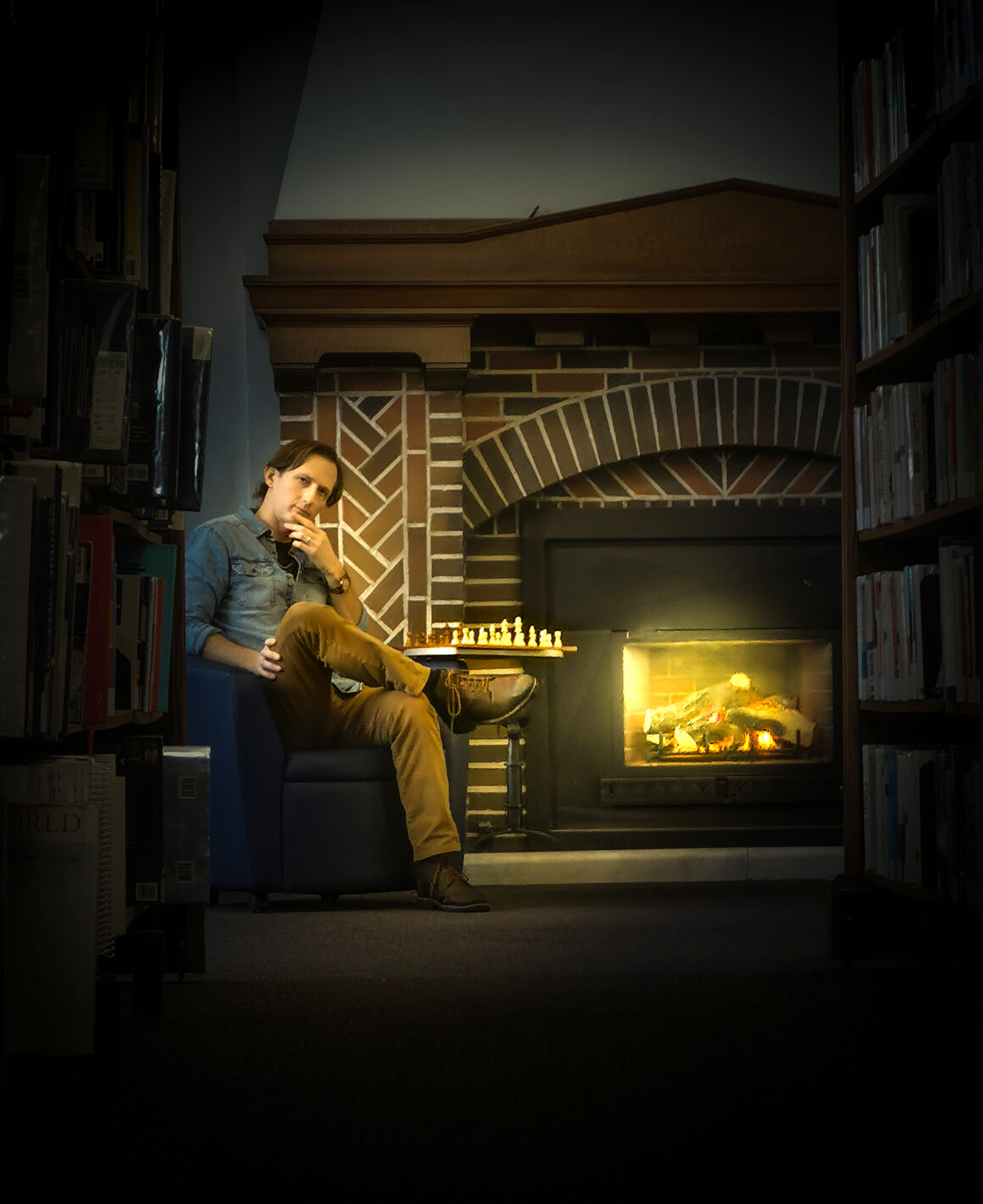
The thing about getting outside your comfort zone is that, as we all know, that’s where life happens, that’s where the good shit is. That is where you grow, and evolve, and improve. The other thing about getting outside your comfort zone is that it is, well, uncomfortable! And there is no doubt I was feeling uncomfortable as I strode through the doors into the tournament room at the Georgian Bay Hotel. My trepidation was held at bay only by one of my favourite quotes, from Hunter S. Thompson: “Buy the ticket, take the ride.”
My first impression was that I could practically taste the nervous energy in the room. Equal parts fretful and anticipatory, there was a forcefield of psychological vigor pulsing through the room as I found my table and sat down, my opponent soon joining. I was relieved to be able to chat with a fellow competitor, and we made small talk while he graciously informed me of some etiquette surrounding chess tournaments.
All of this was repeated by the arbiter, and then everyone shook hands and began play. The nervous hum of the room turned dead silent, and the tense palpitations in the air became nearly tangible as everyone’s concentration increased. The silence was absolutely deafening and felt all-consuming.
A curious sensation overtakes your mind during a competitive chess game; the world shrinks as focus narrows. The tactical battle that plays out is both catastrophe and symphony, laced with the tacit comprehension by both players that it is, in some indirect way, a reflection of their current mental state. All you can hear is the players breathing – mindful, anxious, thoughtful, optimistic.
To quote Tartakower, another grandmaster from yesteryear, “A chess game is divided into three stages: the first, when you hope you have the advantage, the second when you believe you have an advantage, and the third… when you know you’re going to lose!” This was the case for me, and after 54 moves we shook hands, turned in our scoresheets to the official, and my opponent and I looked back through the game cordially.
Some 20 minutes later, I walked out and took a deep gulp of the cool springtime air. Despite the loss, it felt great to have played, realized what it was and what it wasn’t, and be along for the ride. A pitcher of beer with a friend and a stirring performance by a great local blues band helped to dull the sting, and I went to sleep with fresh hope for a new day.
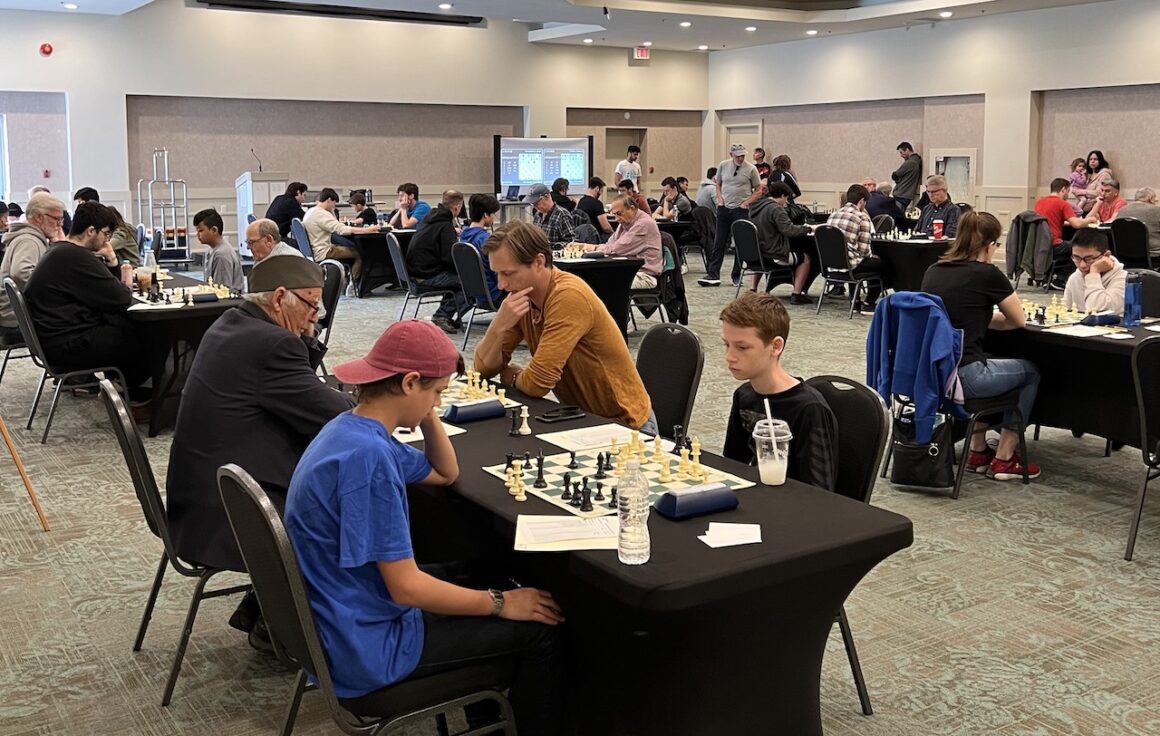
Part of the festival is about Collingwood itself, since many of the players had travelled from all around the province – or from even further abroad – to be here. Milan Somborac, a retired dentist, is the founder of the tournament. “We are attempting to make Collingwood the chess capital of Canada!” he says with zeal. “Collingwood has so much to offer.”
The inaugural even was 2022, with 5 International Masters present, and in 2023 the event is only growing in popularity and participation. Milan himself has had a very interesting life, taught to play chess by his father who had been a POW during WWII. An avid chess player, skier and member of the community, Milan decided to begin his own chess tournament, and the event has already taken off, with over 70 participants total.
After glancing at the sheet for Round 2, I realized I was matched against Milan himself, an accomplished player. Somehow, this felt like extra pressure.
Deep breaths. Just breathe.
By hook or by crook, I managed to scrape up a win, and what a thrill it was … I may frame the scoresheet! For those unacquainted with chess tournaments, players are required to record all the moves as they are made, and they get to keep a copy of the sheet … meaning you can go back through your games to see where you could have improved, or to relive great moments or positions. This is one the aspects of chess that has given it such resonance over the years … anyone is able to access a database of thousands of games, including those played by grandmasters, to study and understand the theory behind different tactics, and relive famous games from over a century ago.
I took some time to go fishing in between games, and had a hard-fought loss to an excellent opponent in the third round. By now, with multiple games under my belt, I was beginning to get the feel for chess tournaments. The flat silence during play didn’t seem quite so foreboding anymore, and each time it settled over the room I felt the sensation growing more familiar. It was uncomfortable in a healthy way, like a cold shower.
Saturday evening, Milan and his lovely wife Rosi hosted the President’s Cocktail Reception at their house, where food and beverages were served, and players mingled with each other and chatted about chess, life, and the universe. It was especially interesting to be able to speak some of the best chess players Canada has ever produced.
After an intense four-hour final the following day, I made it home feeling mentally exhausted and physically spent, cracked a beer, and sat down to ponder the event. While I didn’t win the tournament, I was proud of my performance (couple wins/couple losses), but even more proud to have stepped outside my comfort zone, tried something new, and lived to tell the tale.
I remembered, prior to the final game, speaking with other first time tournament players and agreeing that, while it was a fantastic experience, we needed a break after the tournament was over. This danced in my head for a moment, at odds with another surprising inclination: one I was quite familiar with, but surprised to detect in this moment. It was to this impulse which I eventually succumbed.
I chuckled to myself as I sipped my beer, took out my phone and logged on. With a wry smile, I took a deep breath and started playing chess.
Words by Dan Zuwala
Photos by Nelson Phillips

